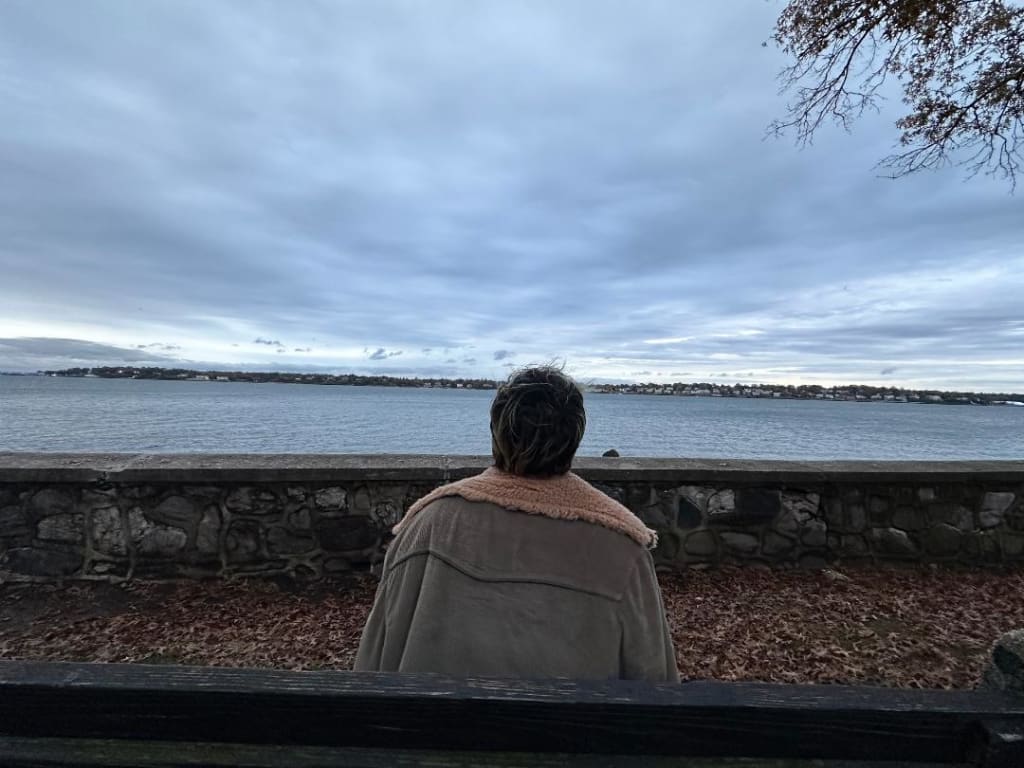Navigating Friendship Dynamics In Your Late Twenties: A Guide To Evolving and Cultivating Meaningful Connections
Because as you change, so do your friendship needs.

I'm about to be 29 shortly. The me I knew at age 18 is different from the me I know now. I still have friends from when I was 18, 25, and so on.
I've also made new friends at 28, and they've gotten really close to me.
But there are also some friendships that no longer serve me. I'm gonna be 30 in a little over a year's time and I'm sick of betraying myself with mediocre friendships.
Nowadays, I want friendships that are positive, ambitious, and meaningful.
Frankly, I don't care how selfish this sounds. As a therapist, I ought to practice what I preach.
So, here's some things I'm doing right now, in real time, forever, and would recommend to anyone who's trying to figure out what to do with their friends. Because some of us are getting older. And sometimes that means our needs are changing, too.
1. Know what you need from your friendships.
At 18 I just wanted to have friends who were funny, wouldn't treat me poorly, and I could hang out with.
Nowadays, I want friendships that do the following:
- Care about how I'm doing by asking genuine questions,
- Have goals and ambitions,
- Have updates of their own, and
- Have a positive and resilient outlook on their lives.
In essence, I want friends I don't need to worry about. And if they do need help, I know my help is impactful, and not going into a void.
When I teach my clients about boundaries or navigating healthy relationships, I emphasize that you must know what you're looking for. Look at the current relationships you have that you don't want to end—what commonalities do they share? Do not be shy or diminish even the smallest qualities. Do they entertain you? Do they do the same things as you? Do they always say "yes" when ask to hang out with them?
Write that stuff down.
2. What do you contribute to your friendships?
I have a personality that suits a therapist. I listen well; meaning I affirm what I heard by recalling important details of what was said and rewording them to ensure I understood you. I keep strong eye contact. I'm not distracted on my phone while you speak. I ask questions to delve further into your story. I ask about what emotions and perspectives are tied to the narration you give me. I validate, affirm, and challenge your thinking (assuming you want that last part).
All of that, on its own, I think makes me a fantastic friend to have. I just so happen to be a therapist, too.
Outside of my therapist-like qualities, I'm also funny as hell—with the correct audience. I give and demonstrate what I seek. I have an absurd amount of conflicting and paradoxical hobbies and interests. Rollerblading, poetry, herbalism, PC gaming, exercise, EDM, drag race (the gay kind), and time in nature are just the broad strokes.
I think my wide range allows me to be ready to relate to a lot of people. And that's how I contribute too—similarities.
Think about what it is you do that makes people come back to you or want to spend time with you.
3. What do you not tolerate in your friendships?
I'll admit, when I was in college around the age of 20 I was one of those people who used to say "we're all one race—the human race."
The silence I was met with the first time I said that, changed me. That old perspective ignored the differences that exist in all of us. Culturally, racially, politically, socioeconomically, you name it. Now I celebrate differences. I look for them and acknowledge them. And if I can't see them, I'm certainly wary of them.
I have little tolerance for people who ignore or denounce difference. Bigots, begone.
There are still people in my life who uphold questionable beliefs. The are still people in my life who beat themselves down as a joke, even though the damage has been done, and are unmotivated to get help. There are people in my life who are too busy taking things personally or walking with too big an ego to see that not everything is about them.
I'm not interested in being angry at them for being this way. I'm just angry at myself for staying in places that do not nourish me anymore. I'm sure that in another life, there is a me who also upholds those same questionable beliefs, uses self-deprecating jokes, and has a fragile ego. And I'm sure that to be surrounded by similar persons, we'd have great camaraderie.
But I'm not that person. I struggle to tolerate any of that behavior now. I don't enjoy complacency or stagnation.
I believe in change.
Think about the people you're around who make you slightly uncomfortable. Slightly unsafe. Slightly hard to trust. Do not belittle any ounce of that feeling. Those feelings are real. Pay attention.
Once you know these things, here are tips to keep in mind as you audit your connections.

There are four qualities in relationships that can both lead to and maintain relationships.
1. Proximity, Frequency, Magnitude, and Longevity.
Proximity - You are in close quarters with one another. The same apartment, the same building, the same dormitory, the same neighborhood, the same borough, state (if you're well-off), you get it. You're around each other.
Frequency - You see each other often. You and another person (or persons) may have the same commute route. Take the same classes after school or work. Encounter each other in weekly meetings. You both frequent the same coffee shop. The same venues. The same recreational activity, like the gym, open mic, archery, climbing, pottery, or knitting class each week. You cross paths often.
Magnitude - You both experience impactful events together—either done to the both of you, or done to or for one another. You're there for them when someone they love is lost. You bring them gifts on their birthday. You take a weekend roadtrip together. You watch the season premiere of a show or movie you both enjoy, together. You tell each other how much you appreciate the other. You both happen to have dated the same person, and were dumped by the same person. Your connection to them is deeply emotional.
Longevity - You've known each other for awhile. It's been years. Maybe decades. You grew up together. You went to school together. You know of each other for an extended period. You both choose to stay connected because you've known one another for a long time.
I have a bone to pick with Longevity. I don't think being friends with someone for a decade means you should stay friends. For me, I recently became friends with someone who knew of me for a year, but reached out about 2 months ago. And we're very close now. I'll call him Orion.
Orion and I have hung out nearly every weekend together, taking edibles and watching Pose, Drag Race, a movie, and so on. We've crashed at each other's places. Little did I realize we also have similar hobbies and behaviors, like trying new foods but having the same dessert somewhere else. We're both LGBTQ+. We're both creative. We both exercise. We've shared mutual feelings of appreciation for each other's company. This connection emphasizes magnitude and frequency, even though we don't live too close to each other. And I've come to appreciate Orion's presence. And he knows that.
But I've known folks for years or up to a decade and I just feel like we're not connecting like we used to. I'll call up two examples, their names Elie and Griffyn.
Elie and I met around August of 2019. We had somewhat similar music tastes and met at an EDM party in Williamsburg. It was so much fun to spend time with him and some mutual friends. We'd drink, get pretty hammered, and since I had driven there, I'd wait out my drunkenness before driving ourselves back to Elie's place before falling asleep. He was always so entertaining and a jokester, participating in my open commentary. But as the pandemic struck and I made mistakes of leapfrogging over Elie to hang out with a mutual friend I found attractive, I saw the way Elie would handle things. There was often a twinge of guilt-tripping and self-deprecation in his words. After Elie and I dropped the mutual friend (they were pretty awful) in 2020/2021, his self-deprecating continued. There were callbacks to my old behavior that I held myself accountable for. I stopped hanging out with him because it wasn't fun anymore to hang out. They'd make open comments worrying that he was boring, and not making decisions about where to go and eat when we'd hang out. Simple questions became pulling teeth.
Straight up? I don't need that.
Griffyn I'd known since freshman year of college, fall semester. They were so good at conversation. They'd keep it going and going and going, for hours. It was really impressive. They'd seem pretty knowledgeable on a lot of things, too. They were also frequently in my company during college, which I thought was pretty neat, too. It's like I always had a friendly companion. We even joined the same fraternity. But I did notice the occasional use of slurs--never directed at anyone, just behind closed doors. And yes, I used to do it too back then. But as I grew to see less and less necessity in using those slurs, he didn't stop. And I didn't stop him, either. I just asked if he felt a need to use those words. And I remember him saying things along the lines of "free speech," or "I'm not saying it towards anyone," or "they don't get mad when I say it." I'll pile on a few more personal frustrations—the constant commentary about terrible drivers while driving, the struggle for agreeing on something together, the negativity and cynicism, the lack of common interests, ugh.
I get annoyed just thinking about it.
What I'm trying to say is, just because you may know someone for a long time, doesn't mean that it's a good one to keep. Some relationships run their course.
2. How to audit, and what to do if it auditing fails.
Start with a candid, honest conversation. Be ready with your reasons, big or small, but preferably real and serious. The intent here to be clear about how you're feeling towards your connection to this person, and that you're wanting some changes in your dynamic. Be ready for criticism on your behavior, too. It's a two-way street, after all.
Be open to knowing that your connection to this person may be changed permanently for doing this. The end goal in mind for auditing a friendship is to check in on it, adjust it to have it fit your needs, and that hopefully you can fit their friendship needs, too. If it doesn't look feasible because you'd have to act on old values, say so.
You're changing. Your needs change. And unless you're okay with having some mildly-fulfillingrelationships, your needs must be met.
If you are gaslit, attacked, betrayed, lied to, or your agreements to change revert back to old ways after a short time, you have two options.
Drift, or close out.
3. Be Open and Patient to New Connections.
Remember that connections have three qualities that can lead to and maintain a friendship--proximity, frequency, and magnitude. I personally would put aside longevity and forget that. That's my experience and I'm sticking to it.
To make new connections, go to communities that share your interests or hobbies. But you must actively participate. If you like reading, go to a book club (virtual or in-person). If you like yoga, take classes or find a community group in your area. If you like performing arts, seek out open mics. And if you're seeking out one-on-one connections through similar hobbies, get on a dating app and look for the friends section, and advertise your hobbies. I met Elie on a dating app, and subsequently met and have become friends with mutuals with similar interests. Orion is a mutual friend of a mutual friend, turned my friend.
Go where folks do as you do, or at least act how you want to act. Be around what you aspire to be or already are. Be patient and active.
Sometimes we might grow to become a little too different from those we currently know. But these days, there's enough people around that you'll find people just like you. And they'll probably be just a little bit different enough from you not to butt heads, but to help you expand upon who you are.
---
Note: I am a licensed therapist.
Disclaimer: All names have been changed to aliases to ensure confidentiality and to respect the privacy of those mentioned. Aliases are used consistently for continuity throughout my posts.
About the Creator
Kirk Pineda, LMHC (aka "DEUXQANE")
93% of communication is non-verbal. Here's the other 7%.
I'm a therapist based in New York. I love my kettlebell, jump rope, and rower. Mystery/fantasy, rollerblading, herbalism, poetry, RPDR, and water enjoyer.
Enjoyed the story? Support the Creator.
Subscribe for free to receive all their stories in your feed. You could also pledge your support or give them a one-off tip, letting them know you appreciate their work.






Comments
There are no comments for this story
Be the first to respond and start the conversation.